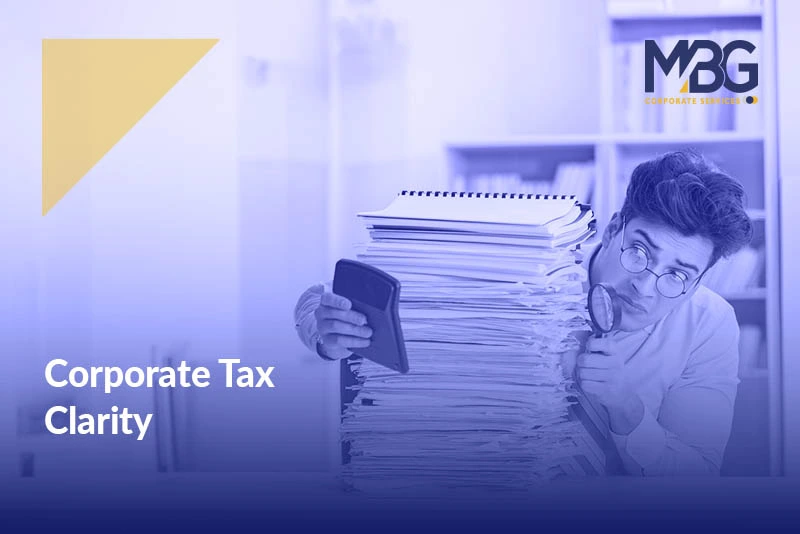Corporate Tax in Qatar: Complete Guide for Businesses 2025

As Qatar continues to shape its direct taxation regime, it is important that both local and foreign companies are aware of the corporate tax environment in Qatar. The rules surrounding direct taxes, corporate taxes, and the new global minimum tax landscape are essential to strategic tax planning and compliance in 2025.
Direct Taxation in Qatar
Qatar operates under a territorial direct tax scenario, which means that generally only income arising from activities in Qatar will be taxed. The legal framework is established under Income Tax Law No. 24 of 2018, as amended, and administered by the General Tax Authority (GTA).
Under the current framework, companies controlled by Qatari nationals or by resident nationals of the GCC will generally be exempt from corporate tax but may still have reporting requirements.
Corporate Tax Rate in Qatar (Under the Mainland Regime)
Standard Corporate Tax Rate
For entities that are partially or wholly foreign owned and derive income from Qatar, the standard corporate tax rate is 10% on the net taxable profits.
Special Rate for Oil, Gas, Petrochemicals
A minimum corporate tax rate of 35% is applicable for companies engaged in petroleum, oil, natural gas, or other petrochemical operations.
Global Minimum Tax
The Council of Ministers has endorsed proposed changes that establish a global minimum corporate tax of 15% on MNEs with revenues above QAR 3 billion, effective December 2024.
- A minimum 15% tax rate will apply to multinational entities and branches.
- Local companies that are not part of multinational groups will continue to be taxed at 10%.
Deductions and Taxable Income
In calculating taxable income, the following deductions may be claimed:
- Cost of goods, including raw materials and consumed products, including services required for the operation of a business
- Payroll expenditures such as wages, benefits, and severance with certain exceptions
- Rental expenses and insurance premiums
- Depreciation that is only deductible in accordance with tax law and its regulations
- Limits on entertaining expenses and Donations
- Limits on Interest Expense Deductions
Losses can only be carried forward for an allowable 5 year period but cannot be carried back.
Withholding and Indirect Liabilities
Withholding tax (WHT) is included within Qatar’s regime of direct taxation of cross-border fees.
- Payments (of royalties, professional technical fees, interest, or commissions) made to non-residents with no presence in Qatar are normally subject to 5% WHT.
- The payer is responsible for withholding and remitting that WHT to the Tax Authorities.
- The payee which has received the payment less WHT is entitled to a WHT refund where there is any Double Tax Treaty available between Qatar and the other Jurisdiction.
- Such WHT rules are an important part of withholding corporate taxation planning, particularly within multinational groups.
Compliance, Filing and Penalties
Registration and Tax Card
Entities operating in Qatar must register with the GTA and obtain a Tax Identification Number (TIN).
Filing and Deadline
- Corporate tax filings must be submitted within 4 months from the end of the financial year.
- Entities with revenue in excess of the threshold or with foreign head offices must submit an audited financial statement, as set out in both Arabic and English.
- An extension may or may not be available depending on the specific circumstances.
Penalties and Interest
Failure to comply with tax laws, late filing, incorrect declarations, and other things can result in financial penalties, interest, audits, and legal risks.
Implications and Strategic Considerations for 2025
- Most multinational firms will now have a minimum tax obligation of 15% as a result of the newly enacted global minimum tax amendments.
- Organisations with a minimal local tax obligation may also wish to consider any additional obligations as part of the QDMTT.
- Local firms, i.e., those that do not belong to a multinational group, will still be able to take advantage of the 10% regime while enjoying the benefits of a lower tax rate.
- Firms may want to consider restructuring internally, tax planning, profit repatriation strategies, aligning internal charges, or changing their capital structure.
- It is also important to ensure you keep close monitoring of any regulatory guidance or GTA rulings regarding how the QDMTT will be implemented.






